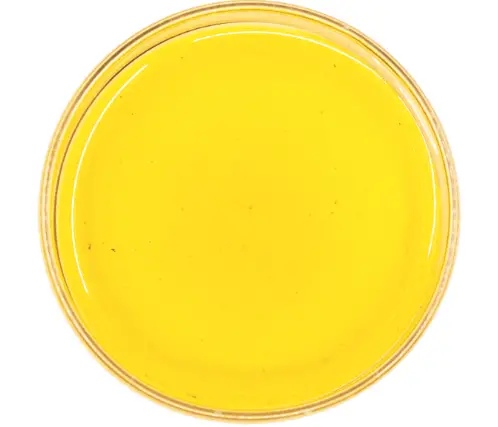Cannabinoids, particularly the two most well-known, THC and CBD, are almost certainly familiar to you. However, you've most likely never heard of cannabichromene or CBC. CBC is one of the most commonly investigated cannabinoids in medical research, having been identified more than 50 years ago. Although it receives less attention, the results of CBC are quite promising.
CBC can account for up to 64% of a plant's cannabis content. Today's plants, on the other hand, are frequently picked for their high THC concentration. As a result, only a small percentage of strains are developed to have high Bulk CBC Distillate levels.
Continue reading for more details on Bona Voluntate's Bulk CBC Distillate.
What Should I Understand About CBC?
Cannabichromene (CBC) is a powerful but non-psychoactive cannabinoid. This means that, unlike THC, it does not cause the user to become “high.” Researchers revealed that CBC, like THC and CBD, can enhance brain growth by increasing the viability of developing brain cells in a process known as neurogenesis. Cannabis' anti-cancer and anti-tumor effects are considerably enhanced by Bulk CBC Distillate.
CBC activates the CB2 receptor, which aids in the battle against inflammation. However, because CBC does not stimulate CB1 when combined with cannabinoids that do, its therapeutic efficacy may be enhanced. This is referred to as the entourage effect.
How Is CBC Distinct From Other Cannabinoids?
If the chemical formula C21H30O2 sounds familiar, it's because you're familiar with cannabis. This formula is shared by THC, CBD, and CBC. It is worth noting, however, that the atoms within the molecule are ordered in a variety of ways.
Despite the fact that many cannabinoids share the same formula, tiny structural changes ensure that they operate differently. THC, for example, differs from Bulk CBC Distillate and CBD in that it binds to CB1 receptors. CB1 receptors are mostly present in the brain, where they contribute to the well-known intoxication effect of marijuana use.
CBC is equivalent to CBD because it does not interact with CB1 and CB2 receptors. It does, however, bind to TRPV1 and TRPA1 receptors. Both receptors are associated with pain perception; activating them increases endocannabinoid levels in the body. CBC achieves this by interfering with the mechanisms that cause these receptors to degrade. It stimulates the endocannabinoid system by increasing the activation of receptors that other cannabinoids affect.
CBC Health Advantages
In studies, CBC has been shown to be beneficial in the treatment of a wide range of symptoms and disorders. The following are some scenarios in which Bulk CBC Distillate can be beneficial:
Pain and Inflammation
CBC has been shown to alleviate pain and inflammation associated with osteoarthritis caused by collagen-related issues. It suffers from depression.
CBC appears to exert this effect by synergizing with THC and CBD to give a trifecta of antidepressant effects in yet another outstanding example of the entourage effect.
Acne A team of researchers that discovered CBD's excellent effect on acne went on to investigate additional cannabinoids. They discovered that CBC has comparable therapeutic benefits.
The Various Types of CBC Products
Because CBC is still considered a novel cannabinoid, there aren't many CBC-specific products on the market – at least not yet. Things are starting to change, with more CBC-rich tinctures, hemp flowers, and extracts hitting the market in recent years.
Tinctures and oil containing CBC
At the moment, the most popular form of CBC is a tincture or oil. This is due to the fact that producing CBC items from a concentrated version is substantially easier.
Many extraction techniques are used to isolate the elements of raw hemp. Because pure CBD is used to make oils, capsules, candies, gummies, and concentrates, it is of major importance. Companies may also receive a small amount of CBC extracts as a byproduct, which they can use to make tinctures.
Concentrates
Concentrates of CBC are isolates with 90-95 percent pure Wholesale CBC Distillate. Because cannabidiol does not crystallise, it is always found as a thick, syrupy extract rather than the more frequent crystalline or powdered form.
Most manufacturers provide CBC isolate in syringes for ease of administration. These concentrates can be used in vape pens, dab rigs, or consumed directly.
Hemp Flower CBC
Currently, there are no specialist CBC hemp flowers on the market, but cannabis breeders are working to change that. In the interim, you can benefit from cannabis strains with higher-than-average CBC levels. Maui Dream and Charlotte's Web are two examples.
CBC Dosing Safety Range
Despite the fact that there hasn't been much research on Wholesale CBC Distillate, the effective dosage appears to be equivalent to CBD so far.
The normal CBC dosage ranges from 10 to 50 mg.
Like CBD, CBC is a relatively safe cannabinoid. It's also fully non-psychoactive, so even large doses won't get you high, and it's unlikely to have any negative side effects.
Is Cannabidiol Legal?
CBC products are completely legal in most countries, including the United States and Canada. The sole requirement is that they are made from hemp. Even though the THC concentration is substantially below psychoactive levels, Wholesale CBC Distillate generated from marijuana is classified as a controlled substance and may only be sold in states where marijuana use is legal.
Hemp-derived CBC is completely legal. In some parts of Europe, only CBC concentrates or broad-spectrum extracts are legal because the THC content must be confirmed to be 0%. Full-spectrum CBC extracts may be prohibited in some European countries.
0






